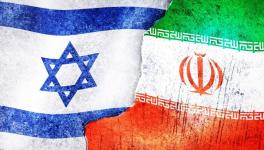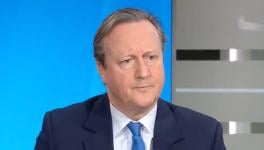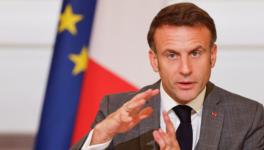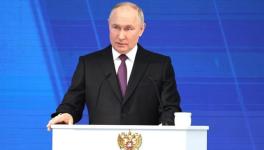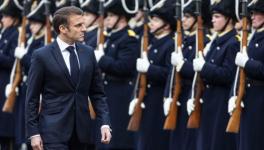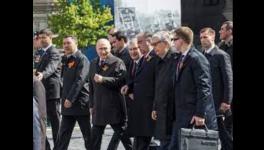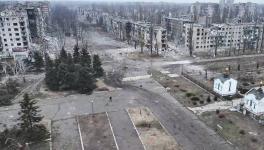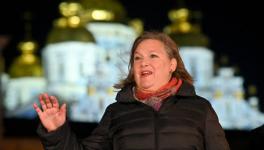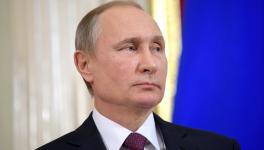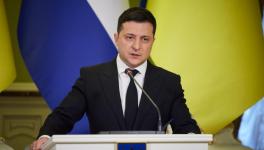Russia-China Alliance at Tipping Point
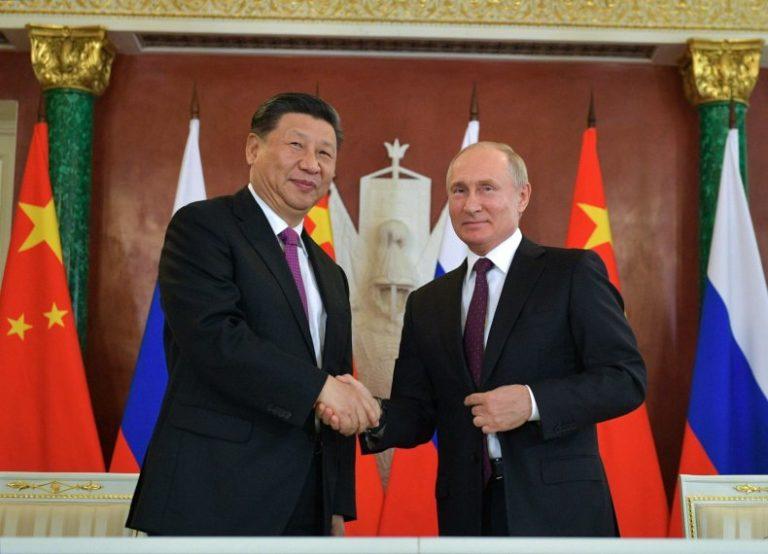
Russian President Vladimir Putin (R) and Chinese President Xi Jinping after their talks, Kremlin, Moscow, June 5, 2019.
The initiative by Beijing to propose a virtual meeting between President Xi Jinping and Russian President Vladimir Putin on Wednesday radically transforms the geopolitics of the North Atlantic Treaty Organisation’s relentless eastward expansion and the Western military deployments on Russia’s borders.
The announcement of the meeting in Beijing came within a day of a G7 meeting of foreign ministers in Liverpool, Britain, on Sunday, which echoed Washington’s rhetoric over an alleged Russian military build-up on Ukrainian border and threatened Moscow with “massive consequences and severe cost in response.”
The G7 meet itself was intended as a new show of western unity against Russia and China to get the west on the front foot. For the first time, ASEAN countries were also included in the G7 ministerial as a part of US President Joe Biden administration’s plans to begin a new “Indo-Pacific economic framework” in a renewed attempt to roll back China’s influence in the region.
The Chinese Foreign Ministry spokesman Ambassador Wang Wenbin, said on Monday that the virtual meeting between Xi and Putin is expected to “take stock of the bilateral relations and cooperation outcomes over this year, make top-level design for the relations next year, and exchange views on major international and regional issues of common concern.”
Ambassador Wang anticipated that the Xi-Putin videoconference “will further enhance our high-level mutual trust, vigorously promote China-Russia “back-to-back” strategic coordination and the robust development of all-round practical cooperation.” And he concluded, “This will provide more stability and positive energy for the complex and fluid international landscape.”
The Kremlin Spokesman Dmitry Peskov has since disclosed that Putin and Xi will address during the talks the NATO’s belligerent rhetoric and the tense situation in Europe. To quote Peskov, “[The two leaders] will exchange their views on international affairs. The recent developments in international affairs, especially on the European continent, are now very tense and this definitely requires discussion between the allies, between Moscow and Beijing.”
Peskov added that Russia is facing “a very aggressive rhetoric both from NATO and the US,” which also needs to be discussed. In effect, Peskov has highlighted that the emergent tense situation on the European continent warrants Russia holding consultation with its close ally China.
No doubt, this signifies an extraordinary dimension to the Russian-Chinese alliance. What role, if any, China is going to play in the evolving scenario will be keenly watched, in particular, as winds for a perfect storm are howling in both Eastern Europe and the Asia-Pacific.
Most important, would the discussion today fall within the ambit of the plan for Russia-China military cooperation for 2021-2025, which the two countries signed on November 23? While signing the document, Russian Defence Minister Sergei Shoigu was quoted as saying, “China and Russia have been strategic partners for many years. Today, in conditions of increasing geopolitical turbulence and growing conflict potential in various parts of the world, the development of our interaction is especially relevant.”
Specifically, Shoigu drew the attention of his Chinese counterpart Wei Fenghe to increasingly intensive flights by the US strategic bombers near Russian borders. He said, “This month, 10 (US) strategic bombers practiced the scenario of using nuclear weapons against Russia practically simultaneously from the western and eastern directions” and came as close as 20 kilometres to the Russian border.
Shoigu also noted a rise in the number of US bomber flights over the Sea of Okhotsk where they practiced the launch of cruise missiles, saying that it posed a threat to both Russia and China. “In such an environment, the Russian-Chinese coordination becomes a stabilising factor in global affairs,” Shoigu had said.
In a brief statement, China’s defence ministry said at that point that the two sides would “continue to deepen strategic cooperation between the two militaries, continue to strengthen cooperation in strategic exercises, joint patrols and other areas, and continue to make new contributions to safeguarding the core interests of China and Russia and maintaining international and regional security and stability.”
Yet, Shoigu was speaking only a fortnight ago. Reporting on the pact, the South China Morning Post commented that China and Russia “are edging closer to a de facto military alliance to counter growing pressure from the United States.”
At the very least, the signing of the road map on military cooperation signalled Russia and China’s willingness to resist US pressure by relying on combined military efforts, if necessary.
The US is unable to simultaneously confront both China and Russia militarily and if the latter were to significantly pool their military power and foreign policy objectives, that would alter the Eurasian balance of power and disadvantage the US.
The US still has the most capable military in the world and there is no question that the US is more powerful than China or Russia alone, but a newfound unity among the latter two can be strategically draining for Washington.
Lyle Goldstein, an expert on China and Russia who served for two decades as a research professor at the Naval War College up until October, told Newsweek on Monday, “I think Moscow and Beijing calculate that they can really keep us (Washington) in a kind of maximum confusion, because the theatres are so distant from each other, and the forces involved are quite different. I do think they see a gain here in kind of pulling us in two directions at once.”
Curiously, in Goldstein’s estimation, “I don’t think the United States is prepared to go to war in Ukraine. I don’t think the United States is prepared to go to war over Taiwan. I stand by both those points. So to do both, no, absolutely not.”
He explained that the Ukraine and Taiwan scenarios in particular “are maximally stressing as they involve high-intensity warfare in theatres that are extremely difficult against opponents that have that single measure of focus. Either one of them on their own would be highly stressing and I would argue, if we were to get involved, there’s a good possibility that we might lose.”
Be that as it may, the video call today sets the stage for Putin’s visit to Beijing at Xi Jinping’s personal invitation as the chief guest at the upcoming Winter Olympics (4-20 February.)
From the look of it, the two leaders’ face-to-face meeting in Beijing in early February will be an event of great significance for global stability and the further consolidation of the strategic partnership between the two countries.
Conceivably, the virtual meeting today amidst the rising tensions in Russia’s relations with the US is a display of the realisation in Beijing that “only by joining hands can China and Russia counter the attack from the US-led clique and avoid falling into passivity,” as Cui Heng, the well-known Chinese scholar at the Center for Russian Studies of East China Normal University, told the Global Times.
Lest it gets overlooked, the Treaty of Good-Neighbourliness and Friendly Cooperation signed by China and Russia in 2001 enshrines that “Russia recognises the government of the People’s Republic of China as the sole legal government representing whole China. Taiwan is a constituent part of China.” The pact is a foundational document on which the Sino-Russian alliance is anchored.
Get the latest reports & analysis with people's perspective on Protests, movements & deep analytical videos, discussions of the current affairs in your Telegram app. Subscribe to NewsClick's Telegram channel & get Real-Time updates on stories, as they get published on our website.









